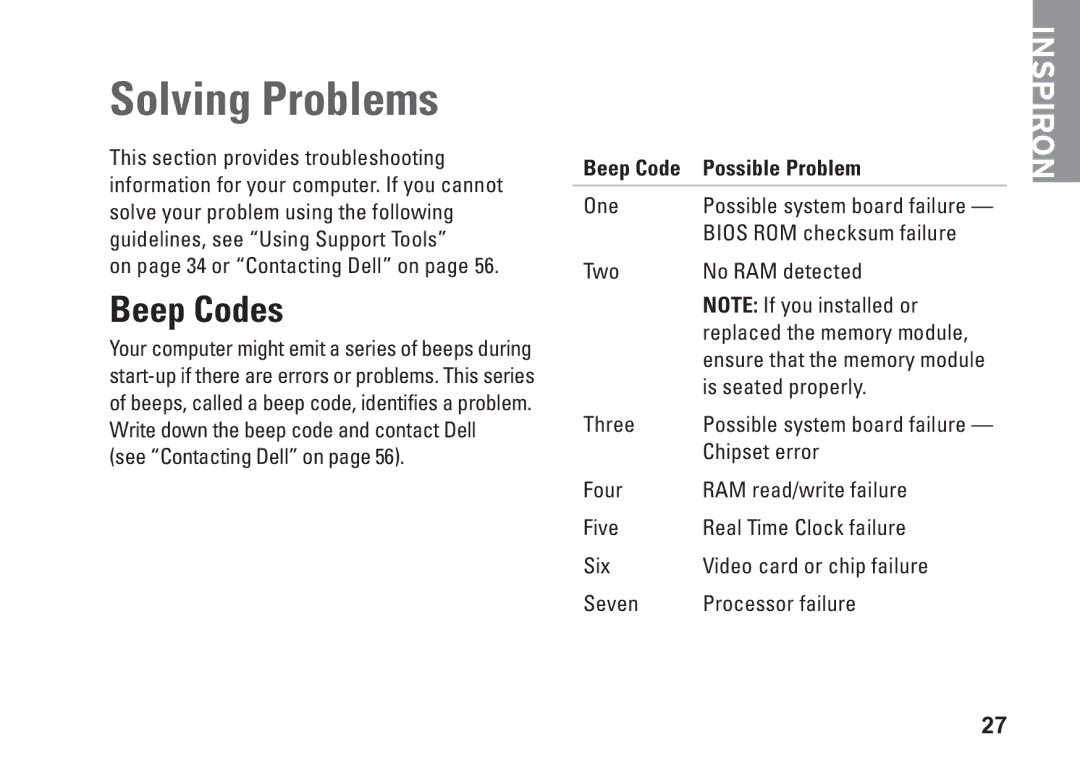560s, C9NR5, DCSLE, 0C9NR5A00 specifications
The Dell 560S, also known by its part numbers 0C9NR5A00 and C9NR5, is a high-performance server designed for businesses that require reliable data management solutions. This server model is a part of Dell's PowerEdge lineup, known for its adaptability and robust technology, making it a favorite in various IT environments.One of the key features of the Dell 560S is its powerful hardware architecture. It supports Intel's latest Xeon processors, allowing businesses to benefit from improved performance and energy efficiency. With options for multiple cores and threads, users can handle demanding applications and workloads with ease. This scalability is useful for growing organizations that need a server capable of adapting to increasing demands.
The 560S also comes with ample memory support, accommodating up to 256 GB of RAM. This feature is crucial for operations that require quick data processing and multitasking capabilities, such as virtualization and database management. Furthermore, the server supports advanced error-correcting code (ECC) memory, enhancing the reliability of data integrity, which is essential for businesses relying heavily on their information systems.
In terms of storage capabilities, the 560S offers flexible configurations with several hard drive options, including SATA and SAS interfaces. It is designed to support RAID configurations, enabling redundancy and better performance. This ensures that data remains safe and accessible, protecting against potential hardware failures.
Networking is another critical aspect of the 560S. It comes equipped with multiple Gigabit Ethernet ports to ensure high-speed data transfer and allows for efficient use of bandwidth. In addition, various optional network interface cards (NICs) can be added to optimize the server for specific network topologies or requirements.
The Dell 560S is built with manageability in mind. It includes Dell's OpenManage system management tools, allowing IT administrators to monitor server health, perform updates, and manage configurations seamlessly. This feature streamlines administrative tasks and minimizes downtime, crucial for mission-critical applications.
In conclusion, the Dell 560S, identified by part numbers 0C9NR5A00 and C9NR5, stands out with its powerful processors, extensive memory capacity, versatile storage options, robust networking capabilities, and efficient management tools. It is an ideal solution for businesses seeking a reliable server that can scale to meet their evolving IT needs while delivering performance and security.
